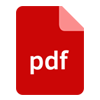Documents
Policy Paper - Global Cooperation of Democracies in the Digital Realm
Discussion Paper - Towards a Global Cooperation for Democracy
Program
Monday, October 11
09:30 - 10:15 CET |
|
Opening
Welcome:
Introduction:
Remarks:
Opening Remarks:
|
10:15 - 11:15 CET |
|
Opening Panel
Keynote speech:
Moderator:
Speakers:
|
11:15 - 11:30 CET |
|
Address
Speakers:
|
11:30 - 12:15 CET |
|
Discussion
Moderator:
Speakers:
|
12:20 - 12:55 CET |
|
Discussion
Moderator:
Speakers:
|
12:55 - 13:40 CET |
|
Democracy Dialogues
Moderator:
Speakers:
|
13:45 - 14:25 CET |
|
Discussion
In cooperation with Prague European Summit.
Moderator:
Speakers:
|
14:25 - 14:45 CET |
|
Žofín Conversation
Moderator:
Speakers:
|
15:00 - 15:50 CET |
|
Discussion
Moderator:
Speakers:
|
15:50 - 16:10 CET |
|
Žofín Conversation
Moderator:
Speakers:
|
16:10 - 17:00 CET |
|
Discussion
Speakers:
|
17:15 - 18:00 CET |
|
Discussion
Moderator:
Speakers:
|
18:15 - 19:15 CET |
|
Panel Discussion
Moderator:
Speakers:
|
Tuesday, October 12
10:05 - 11:05 CET |
|
Panel Discussion
Moderator:
Speakers:
|
11:20 - 12:05 CET |
|
Discussion
Moderator:
Speakers:
|
12:40 - 13:10 CET |
|
Discussion
Moderator:
Speakers:
|
13:30 - 14:15 CET |
|
Panel Discussion
Moderator:
Speakers:
|
14:15 - 15:00 CET |
|
Panel Discussion
Moderator:
Speakers:
|
15:15 - 15:35 CET |
|
Discussion
Moderator:
Speakers:
|
15:35 - 15:55 CET |
|
Discussion
Moderator:
Speakers:
|
15:55 - 16:15 CET |
|
Discussion
Moderator:
Speakers:
|
16:25 - 16:35 CET |
|
Special Address
Introduction:
Keynote speech:
|
16:35 - 17:45 CET |
|
Closing Panel
Remarks:
Moderator:
Speakers:
|


